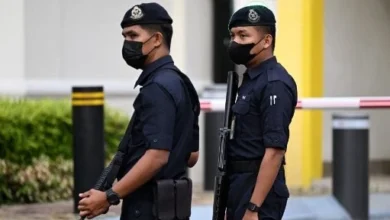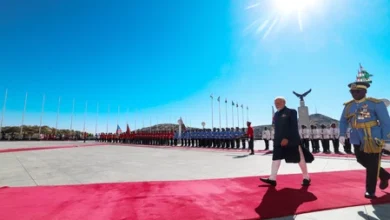Sierra Leone’s capital unveils Africa’s first heat action plan to tackle rising temperatures

Sierra Leone’s capital unveils Africa’s first heat action plan to tackle rising temperatures
Sierra Leone hosted the first-ever African Urban Heat Summit on February 6, 2025 in a landmark initiative to tackle the rising threat of extreme heat in African cities.
Organised by the city of Freetown and global climate adaptation non-governmental organisation Climate Resilience for All (CRA), the event saw the launch of Freetown’s heat action plan (HAP) – the first such comprehensive document in the continent.
The HAP was unveiled by Vice President of Sierra Leone Mohamed Juldeh Jalloh and Freetown Mayor Yvonne Aki-Sawyerr. The event brought together mayors, policymakers, development partners and climate experts from across the continent to discuss strategies for mitigating urban heat.
Jalloh, in his inaugural address, underscored the urgency of addressing extreme heat, which is no longer a distant threat but a present reality for millions in Africa’s cities. “Extreme heat is disrupting lives, straining healthcare systems and threatening economic stability,” he said .
Scientific evidence highlights the compounding effects of urban heat islands (UHI), rapid urbanisation and climate change, making African cities particularly vulnerable. The Intergovernmental Panel on Climate Change has warned that the economic cost of climate change for overheated African cities could be twice the global average.
The British High Commissioner to Sierra Leone, Josephine Gauld, commended Freetown’s leadership in tackling urban heat, particularly following record-breaking temperatures in January. She emphasised the importance of green infrastructure and sustainable urban planning in mitigating the UHI effect.
The HAP outlined targeted actions, policies and partnerships to enhance heat resilience. These included the creation of cooling corridors and green spaces to reduce heat exposure, infrastructure improvements to adapt urban areas to rising temperatures and protective measures for vulnerable groups, including women, children and the elderly. Additionally, it emphasised public awareness campaigns on heat-related risks and solutions.
“This will be a game-changer in making Freetown greener, cooler and more resilient in the face of rising temperatures,” stated Eugenia Kargbo, chief heat officer for Freetown, in a post on LinkedIn. Kargbo, who was appointed Africa’s first-ever chief heat officer in 2021, has played a pivotal role in developing the plan.
“Our Heat Action Plan is not just a policy document – it is a commitment to protect our communities and build a city that is cooler, greener and more resilient,” added Mayor Aki-Sawyerr.
By 2050, over 70 per cent of Africa’s population is expected to live in cities, with deadly heatwaves projected to threaten one-third of urban dwellers by the 2090s. Exposure to extreme heat in African cities could surge 20 to 52 times, reaching between 86 and 217 billion person-days per year, according to a study.
Against this backdrop, CRA announced a $120,000 grant as a co-host of the summit. Three cities will receive up to $40,000 each to implement heat action measures.
CRA CEO Kathy Baughman McLeod stressed the summit’s importance, stating, “This Summit represents hope and action – both are needed to tackle this invisible threat. With women disproportionately affected, solutions for heat must start and end with their voices and leadership.”
A model for African cities
The summit attracted participation from leaders of Accra, Kanifing, Monrovia, Conakry, Ouagadougou, and Abidjan, alongside experts from C40 Cities, the United Nations Office for Disaster Risk Reduction and the Quadrature Climate Foundation.
As African megacities like Lagos and Cairo continue to experience rising temperatures, Freetown’s leadership in developing a heat action plan was hailed as a model for the continent. With growing international support and local commitment, Freetown is spearheading West Africa’s fight against extreme heat, ensuring that African cities remain liveable and resilient in the face of climate change. The city has already begun implementing key interventions, including relocating manufacturing industries to rural areas to reduce urban heat concentration.
The success of Freetown’s Heat Action Plan could inspire similar programmes across Africa, strengthening the continent’s preparedness to tackle the effects of climate change.









